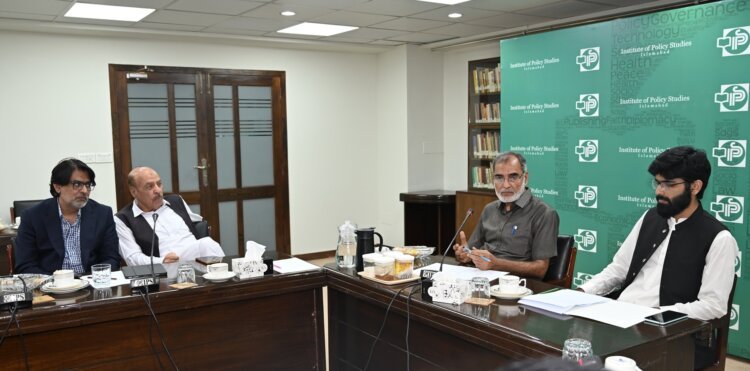Experts call for cultural and religious alignment in Pakistan’s reproductive health education bill
ISLAMABAD, August 29 – Educationists, legal experts, and scholars have stressed the need to align Pakistan’s proposed reproductive health education bill with the country’s cultural values, Islamic teachings, and constitutional provisions, warning against uncritical adoption of Western models of sexuality education.
The concerns were raised at a roundtable discussion hosted by the Institute of Policy Studies (IPS), Islamabad, under its ‘Legislative Watch’ initiative. The forum critically examined the bill, recently cleared by the Senate Standing Committee on Federal Education and Professional Training.
Participants, including advocate Imran Shafique, educationist Arshad Saeed Khan, religious scholar Dr Waqas Khan, senior lawyer Ameena Sohail, legal commentator Syed Muaz Shah, curriculum expert Ammar Mehboob, Dr Umme Kulsoom, Advocate Muhammad bin Sajid, and IPS Chairman Khalid Rahman, debated the bill from educational, social, and legal perspectives.
Speakers emphasized the central role of parents and families in guiding the moral development of children. They suggested that education should focus on family values, spousal responsibilities, and haya (chastity) through an indigenous framework rather than replicating foreign curricula.
While acknowledging that technology and shifting social norms require new approaches, participants cautioned that introducing Western concepts of sexuality could clash with Pakistan’s moral and cultural fabric. Articles 31, 35, and 227 of the Constitution, which require alignment with Islamic injunctions and protection of family integrity, were cited as guiding principles for any reform.
Several speakers noted contradictions in state policy: although marriage under 18 is prohibited, children remain widely exposed to explicit online content and the effects of co-education. This, they argued, demands a holistic and culturally rooted approach.
The session also raised questions about the bill’s clarity, scope, and alignment with the original 1976 education law, stressing the need for local evidence, clear definitions, and parental consent provisions.
In his closing remarks, Khalid Rahman urged policymakers to develop an indigenous, values-based framework for reproductive health and moral education—one that addresses contemporary challenges while safeguarding Pakistan’s cultural and religious foundations.



